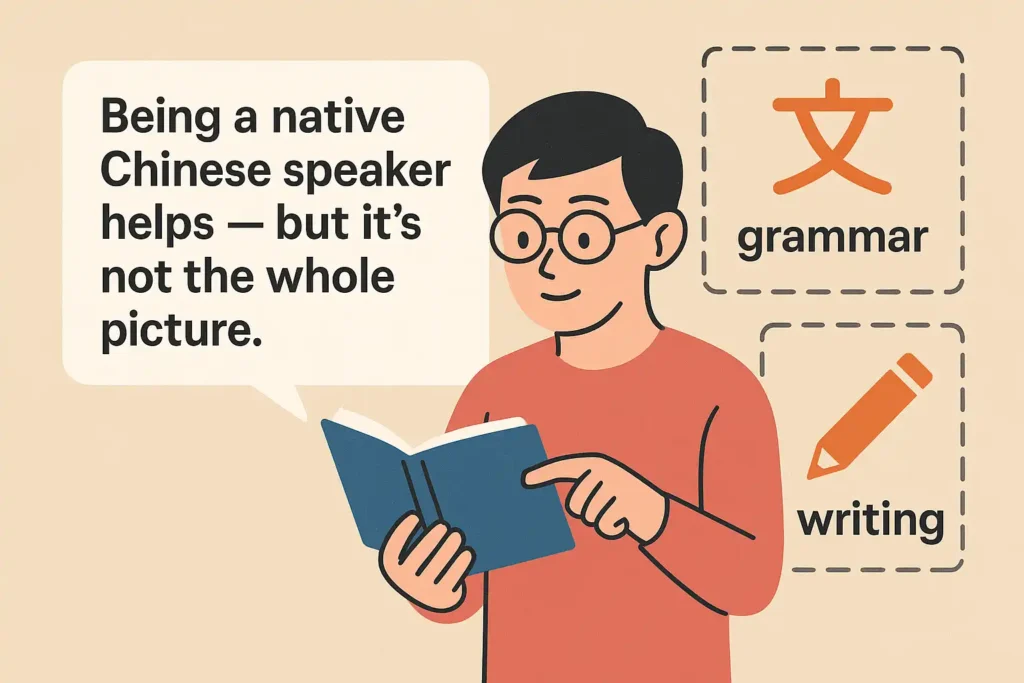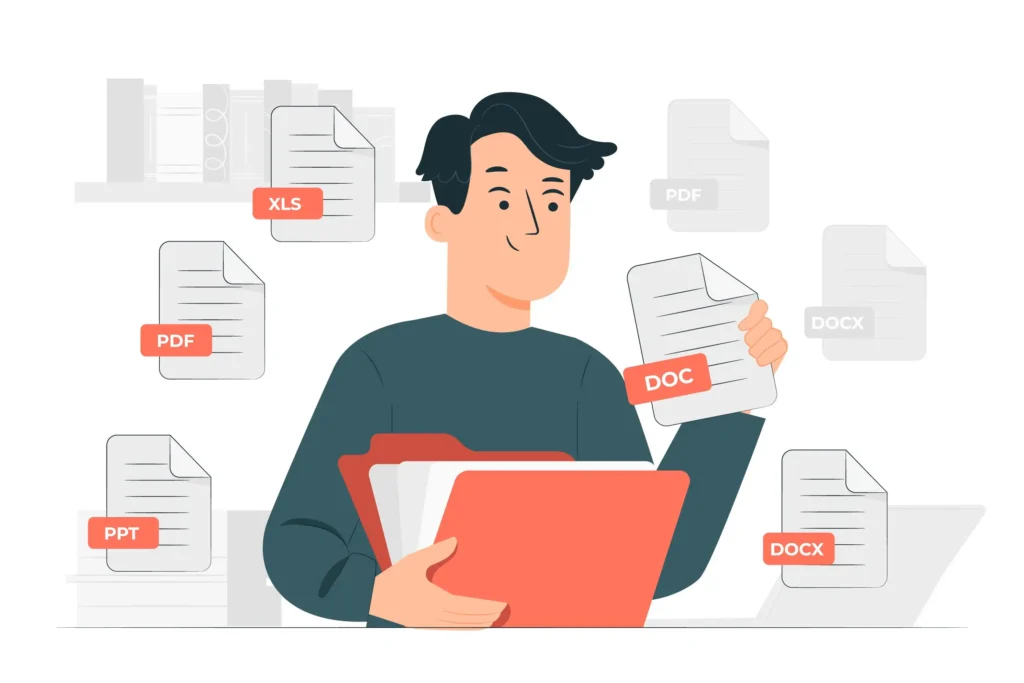🧠 In This Post, Learn How to:
✅ Choose the right level of translation service
✅ Vet your providers (even if they’re native speakers)
✅ Share source files that speed up turnaround
✅ Align your team with smart workflows
✅ Avoid scope creep with clear guidelines
🎯 Translation should be a partnership — not a gamble.
Translation Success Requires More Than Just Skill
Let’s be honest — great translation doesn’t just come from knowing two languages. It comes from experience, systems, and working as a team.
In fact, professional translation is both a technical craft and a creative process. And like any serious profession, it requires lifelong learning. Whether you’re new to managing translation projects or already have a vendor on board, one thing makes all the difference: clear collaboration.
This blog post is based on real-world insights from seasoned Chinese translators and project managers. It answers two questions clients ask all the time:
- What makes a translation project run smoothly from start to finish?
- How do I avoid delays, confusion, and unexpected costs?
Let’s dive in.
1. Choose the Right Level of Service for Your Needs
Here’s something we see often: clients treating every document the same. A brand brochure? A legal contract? Internal training notes? All sent for translation with the same expectations.
But not every piece of content needs premium-level work — and that’s okay.
As our founder Sophie puts it:
“Important content deserves premium service that uses top-tier translators and full QA. Internal or low-priority documents may only require a standard or economic option.”
At AZ-Loc, we offer three levels of Chinese translation service:

Premium: For certified documents, medical, legal, or marketing copy that needs transcreation or public release
Standard: For business reports, training material, manuals, and similar docs
Economic: For high-volume or internal-only documents where speed and cost-efficiency matter more than creative tone
Choosing the right tier from the beginning helps us tailor our team, schedule, and budget to your actual needs — no more, no less.
2. Don’t Just Hire a Native Speaker — Work with Professionals
Being a native Chinese speaker helps — but it’s not the whole picture.

Professional translators are trained to:
Understand tone and register
Adapt text for regional and industry-specific nuances
Follow formatting, glossary, and compliance rules
Collaborate with clients and PMs to stay aligned
We’ve seen it too many times — clients who went with the cheapest offer ended up paying more later to fix awkward language, mismatched terms, or layout issues.
🟥 Red Flags to Watch Out For
These behaviors often indicate trouble ahead — proceed with caution.
| 🚩 Warning Sign | Why It’s a Problem |
|---|---|
| Avoids questions about process or pricing | Transparency is key. If they’re vague now, expect bigger issues later. |
| Promises the moon without sharing past work | Bold claims without proof suggest inexperience or poor results. |
| Offers rock-bottom prices with no timeline or guarantee | Quality, speed, and cost are always in balance. Unrealistic offers often lead to missed deadlines or poor translation. |
✅ What a Reliable Chinese Translation Agency Looks Like
Professional, predictable, and committed to your success.
| ✔️ Positive Trait | What It Means for You |
|---|---|
| Assigns translators with subject-matter expertise | Your content is accurate, context-aware, and appropriate for your audience. |
| Provides clear pricing and turnaround estimates | No billing surprises. You can plan confidently. |
| Communicates regularly throughout the project | You stay informed, involved, and in control from start to finish. |
You’re not just hiring a linguist — you’re choosing a collaborator.
3. Send the Right Source Files — and Send Them Early
Want to help us deliver great results fast? Give us solid source files up front.

No need to overthink it — just make sure your content is:
Editable (Word, Excel, PowerPoint are ideal)
Finalized (not “work-in-progress”)
Accompanied by any reference materials you already use
Depending on your project type:
- Website content can come in Word/Excel or exported HTML/XML
- Multimedia translations (e.g., subtitles or voiceover) need videos + transcripts or subtitle files
- For typesetting (DTP), we’ll need original design files (like INDD or AI)
Also helpful:
- A glossary of key terms, names, and recurring phrases
- A style guide if you have one — tone, audience, formatting preferences
- Info about the end use: Is it internal? Going public? Legal? Marketing?
Even a few minutes of prep on your side can save hours (or days) on ours.
4. Understand the Workflow — and Expect One
Translation isn’t just “send file → get file back.”
A professional team will walk you through their workflow. That might include:
- Reviewing your files and confirming scope
- Assigning the right translator(s)
- Running internal QA
- Formatting and delivering on deadline
- Handling any post-delivery feedback
“A clear workflow aligns the team, reduces confusion, and ensures we meet expectations across time, quality, and cost,” Sophie says.
Good workflows avoid miscommunication. They also keep everyone in the loop — especially if multiple translators or reviewers are involved. At AZ-Loc, we often use Slack channels, Google Drive folders, or PM tools like Trello or ClickUp to keep things moving.
If your current provider doesn’t explain their workflow clearly — ask. If they can’t? That’s a red flag.
5. Set Clear Guidelines to Manage Expectations
Especially for large or complex projects, clear documentation = smoother results.

Here’s what we recommend:
- A simple project brief outlining your goals, audience, file types, and deadline
- Shared folders for version control and transparency
- Defined roles: who gives final approval, who signs off glossary or layout
Got existing materials? Great — share your past translations, product names, or internal reference docs.
Working with luxury, fashion, or creative content? Ask for a test translation first — a short sample will help you feel confident about tone and brand consistency.
And don’t forget an NDA — especially when dealing with private or sensitive data.
So, What’s in It for You?
Here’s what you gain when you treat translation as a strategic process, not just a cost line:
✅ Fewer revisions
✅ Faster turnarounds
✅ Clearer budgeting
✅ Long-term consistency
✅ A team that grows with your business
We’ve built long-standing partnerships with brands that appreciate quality — not just words, but the work behind them.
Let’s Work Together
If you believe your message deserves more than a quick machine translation, we’re here for you.
We serve clients who understand the value of communication — and want a team who shares that same care.
👉 let’s build something excellent together!
